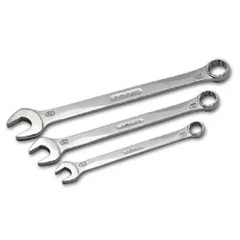Shovel economics refers to the economic impact and significance of the shovel industry, which encompasses the production, distribution, and use of shovels for various purposes. Shovels play a pivotal role in a wide range of sectors, influencing economic activities, employment, and resource utilization. Here’s an overview of the industry’s impact:
- Manufacturing and Production: The shovel industry contributes to manufacturing economies by producing a variety of shovels tailored for different tasks, materials, and industries. Shovel manufacturers contribute to local and global supply chains, sourcing raw materials, employing labor, and supporting related industries like metallurgy and plastics.
- Job Creation: Shovel manufacturing provides employment opportunities for individuals in various roles, from engineers and designers to factory workers and sales teams. Local economies benefit from job creation, helping sustain livelihoods and communities.
- Industrial and Agricultural Sectors: Shovels are essential tools in agriculture, construction, mining, landscaping, and other industries. They facilitate resource extraction, infrastructure development, and crop cultivation, directly impacting the productivity and efficiency of these sectors.
- Innovation and Technology: The shovel industry is not exempt from technological advancements. Innovations in materials, design, and ergonomics contribute to improved shovel efficiency, durability, and user comfort. Research and development in this sector drive innovation in related fields as well.
- Global Trade and Commerce: Shovels are traded on international markets, contributing to global trade. Countries with specialized manufacturing capabilities often export shovels to regions where demand is high due to construction booms, infrastructure projects, and agriculture.
- Construction and Infrastructure Development: The construction industry relies heavily on shovels for tasks like excavation, foundation preparation, and material handling. As urbanization and development continue, the demand for construction-related shovels remains steady.
- Mining and Resource Extraction: Mining companies heavily rely on shovels for earthmoving, extraction, and transportation of minerals. The shovel industry’s health can reflect the overall health of the mining sector.
- Agricultural Productivity: Agricultural shovels contribute to crop production by aiding in soil preparation, planting, and maintenance. The efficiency of these tools can impact agricultural productivity and food supply.
- Environmental Impact: As shovels are used for various tasks, their environmental impact is a consideration. Manufacturers and users increasingly seek sustainable materials and practices to reduce their ecological footprint.
- Local Economies and Small Businesses: Small-scale shovel manufacturers often serve local markets, contributing to regional economies. Specialty shovels, like those used in gardening or niche industries, support small businesses.
- Infrastructure Maintenance: Beyond construction, shovels are used for ongoing infrastructure maintenance, such as repairing roads, sidewalks, and public spaces. This contributes to the upkeep of cities and municipalities.
- Equipment Rental: Shovel rental services cater to individuals and businesses that require specialized tools for short-term projects, providing flexibility without the need for large capital investments.
In essence, the shovel industry’s impact spans a multitude of sectors and activities, influencing economic development, job creation, and technological progress. From construction to agriculture to mining, shovels play an indispensable role in shaping the modern world’s physical landscape.
























